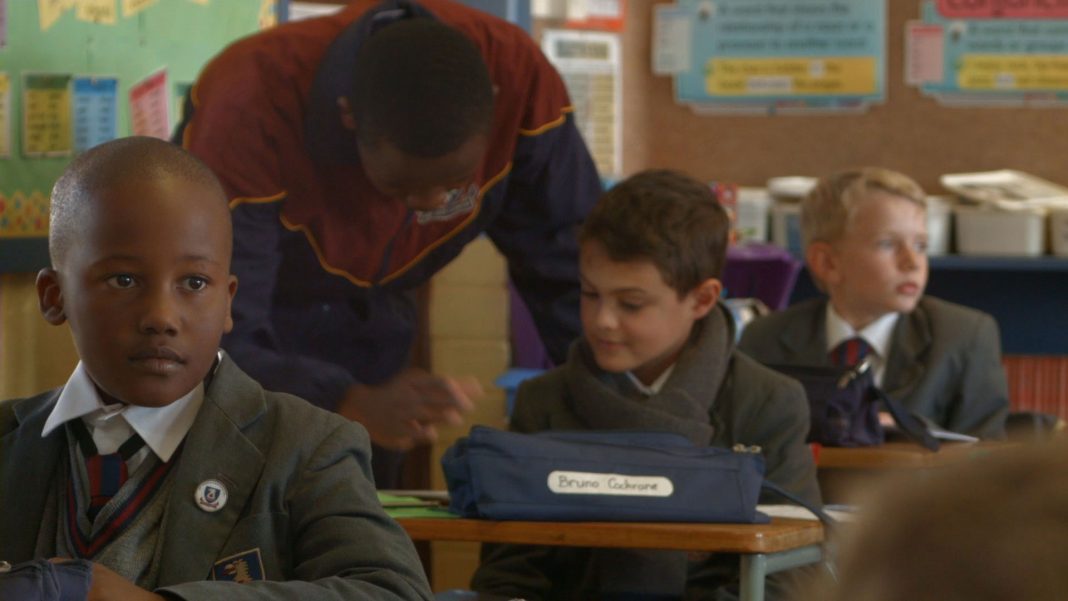Gugulethu .K. Radebe
I started my journey as an educator at an all-girls private high school in Durban. I was a former learner at the school and my mother was an old girl.
I had matriculated the year before with 6 Distinction and a high B.
Up until the very first staff meeting, I was quite excited about getting the opportunity to teach and learn even more from all the amazing teachers who had taught me all those years.
As the new staff orientation meeting began I started to get a shrinking feeling. I started to feel like there was nothing I could do to contribute to this environment which boasted serious academics and highly experienced and accomplished staff. I felt like an outsider, like I didn’t belong in any of the spaces I was being pushed to fit into; I felt like an alien and most times, I still do.
The imposter syndrome is a term coined by two American psychologists Pauline Clance and Suzanne Imes. They describe it as the feeling of “phoniness in people who believe that they are not intelligent, capable or creative despite evidence of high achievement.”
In that staff room on that first day, that shrinking feeling came from feeling like I wasn’t worthy of sitting in a room full of other people who had the same passion for education as me. That feeling is that knot I’ve often felt when I am given the opportunity to educate teachers about topics I had great interest in and I spent hours reading about. That feeling was the dry-mouthed feeling I got as I stood in a class full of teenage girls for my first history lesson at school.
That feeling is the reason why so many young black teachers are finding it increasingly difficult to confidently teach in affluent and top achieving schools. There is a constant reminder, often from one’s own insecurities, that someone like you doesn’t deserve to be in the position in which they find themselves.
Having started teaching as an intern teacher, I have had to wrestle with my own fears and insecurities often. However, every place I had found myself as an intern teacher had in one way or another reaffirmed some of these fears which further isolated me in my attempt to build my confidence and to be able to fill my role as both an educator and a mentor.
There were often little reminders of my inadequacy first as a young teacher and later, in a different school environment, as young black teacher. I had learnt to doubt my ability because I had experienced being the invisible figure at the back of a teacher’s class who was never given an opportunity to even engage in discussion about my views and thoughts.
I had experienced being plunged into the deep end and being forgotten until someone came around to evaluate my class. Schools often take on internship programmes with the intention of empowering young teachers and encouraging young people to be teachers but often forget to allow their intern teachers the space they need to discover themselves, to reflect and to contribute to the everyday life of the school.
If we want to build a solid learning system that works for the emerging generation we need to be willing to empower younger people to contribute to the foundation process of their learning and their growth. We need to be creating spaces where young teachers and more experienced teachers are given an equal platform for learning, discovering and innovating.
Teachers who have been in the school system for over ten years have had a lot of exposure to the ins and outs of education and are able to deal with issues that are faced by both teachers and learners. They are a lot more sensitive to the needs of learners and understand the content with a depth that young teachers can only dream of.
Younger teachers are able to engage the learners easier; they’re often driven by a deep desire to give back and are still open to changes and innovations. Both young teachers and more experienced teachers have the power to create a learning experience that learners will never forget and can pass messages to their learners in ways that could rebuild the society their learners will help to build.
This is in no way a desperate plea to teacher to be nicer to interns but it’s a way of looking at intern teachers, not as needy weirdos sitting at the back of your maths class, but as a potential partner in helping you to get the best out of the time that you have with your learners.
It’s using your classroom space to teach not only future teachers but people who will pioneer a new way to learn and teach that not only captivates learners for 45 minutes but builds them for life. I’ve often been tempted to pack up and give up on all things education. I’ve often been tempted to dismiss my desire to contribute to education as a naive ambition that I will never realise but often I am reminded that I chose to become a teacher because of my strong passion for human life and the fundamental human rights of every single individual I encounter.
I was driven to become a teacher, not to deliver curriculum but to shape society and I would have appreciated having mentors who cultivated that passion and dared to allow me to give off more of myself.
When I stand in a room full of teenagers, I still feel the knots in my stomach and constantly try to predict every single question they could ever ask me so that I feel better about my worthiness to stand before them. I still walk into rooms full of overqualified and way more experienced individuals and feel like ducking out and never coming back. It’s when I encounter individuals who ask me sincere questions about my passions and who allow me to learn more from them that make me feel more welcomed. It’s when I’m offered an opportunity to learn that I feel more valued and it’s when fellow colleagues are honest about their own ignorance and fault that I feel like I could get up each morning and dare to be a teacher.
Gugulethu .K. Radebe is a teacher, poet and social activist.










